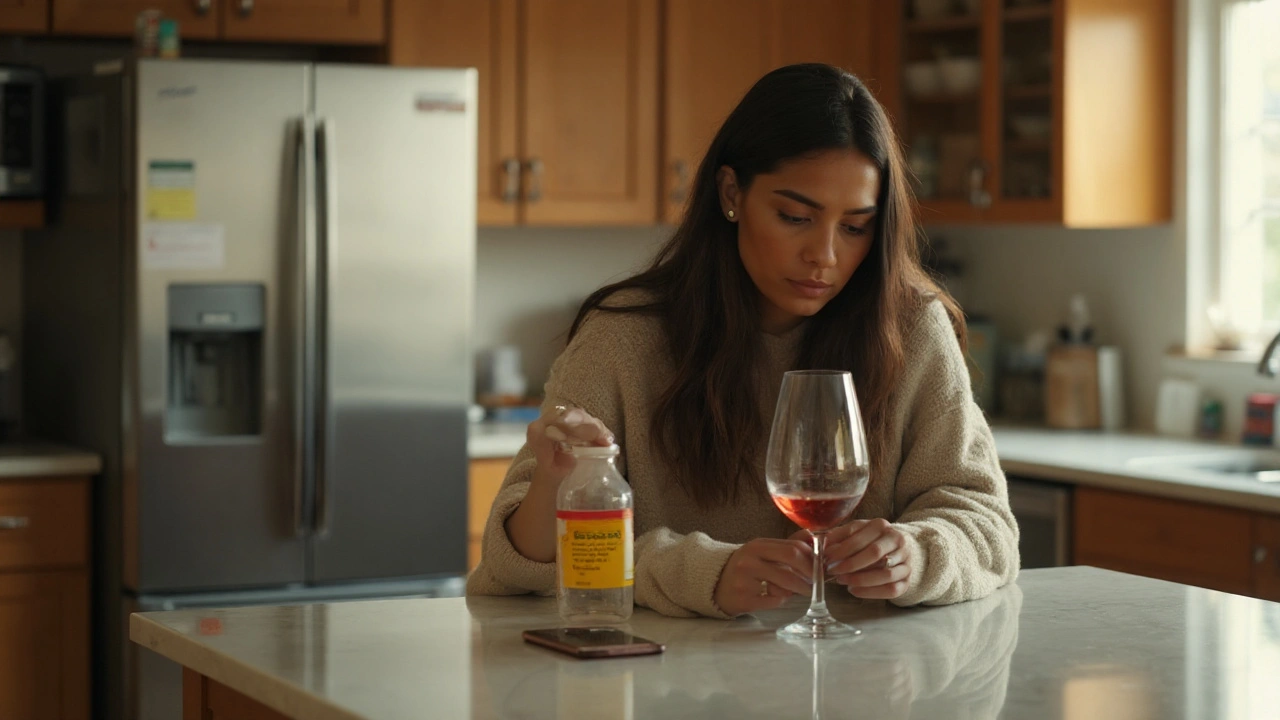Antibiotics and Alcohol: What Really Happens When You Mix Them?
You've probably heard, "don't drink while on antibiotics," but the truth is a bit more nuanced. Some meds can cause nasty side effects with booze, while others aren't a big deal. Knowing the facts helps you avoid uncomfortable reactions and finish your course strong.
How Alcohol Affects Different Antibiotics
First off, not every antibiotic reacts the same way. The classic culprits are metronidazole, tinidazole, and the old‑fashioned sulfamethoxazole‑trimethoprim. With these, even a single drink can trigger flushing, rapid heartbeat, nausea, and headache – a reaction doctors call a "disulfiram‑like" effect.
On the other hand, antibiotics like amoxicillin, doxycycline, or azithromycin generally tolerate a moderate amount of alcohol. That doesn't mean you should binge, but a glass of wine with dinner rarely leads to a medical emergency.
Why the difference? Some antibiotics are broken down in the liver using the same enzymes that process alcohol. When both compete for the same pathway, the drug can build up to harmful levels, or the alcohol can intensify the drug’s side effects.
Practical Tips for Staying Safe
1. **Read the label or ask your pharmacist** – If a medication says “avoid alcohol,” take it seriously. The warning is there for a reason.
2. **Stick to low‑alcohol drinks** – If your doctor says a light drink is okay, choose something like a single beer or a small glass of wine. Avoid spirits, mixers, and anything that can quickly raise your blood alcohol level.
3. **Mind the timing** – Even after you finish the antibiotic, wait at least 48 hours before drinking. Some drugs linger in your system longer than you think.
4. **Watch for side effects** – Feeling dizzy, flushing, or a sudden stomach upset after a drink? Stop the alcohol and let your doctor know.
5. **Stay hydrated and rest** – Alcohol can dehydrate you, which makes it harder for your body to fight infection. Water, sleep, and a balanced diet help the antibiotics work better.
Remember, the main goal of any antibiotic is to clear the infection. If alcohol interferes with that, you’ll end up feeling worse and possibly needing a second round of treatment.
In short, not all antibiotics hate alcohol, but the safest bet is to keep drinking low‑key or avoid it altogether until you’re done with the meds. When in doubt, ask your doctor – a quick question can save you from an uncomfortable night and keep your recovery on track.
Medications and Alcohol: Safe Mixes, Dangerous Combos, and What to Do (2025 Guide)
Can you drink on your meds? Clear, evidence-backed rules, risk-by-drug tables, and step-by-steps so you know what’s safe, what’s not, and how to handle slip-ups.
Keanu Rutherford | Sep, 10 2025 Read More
